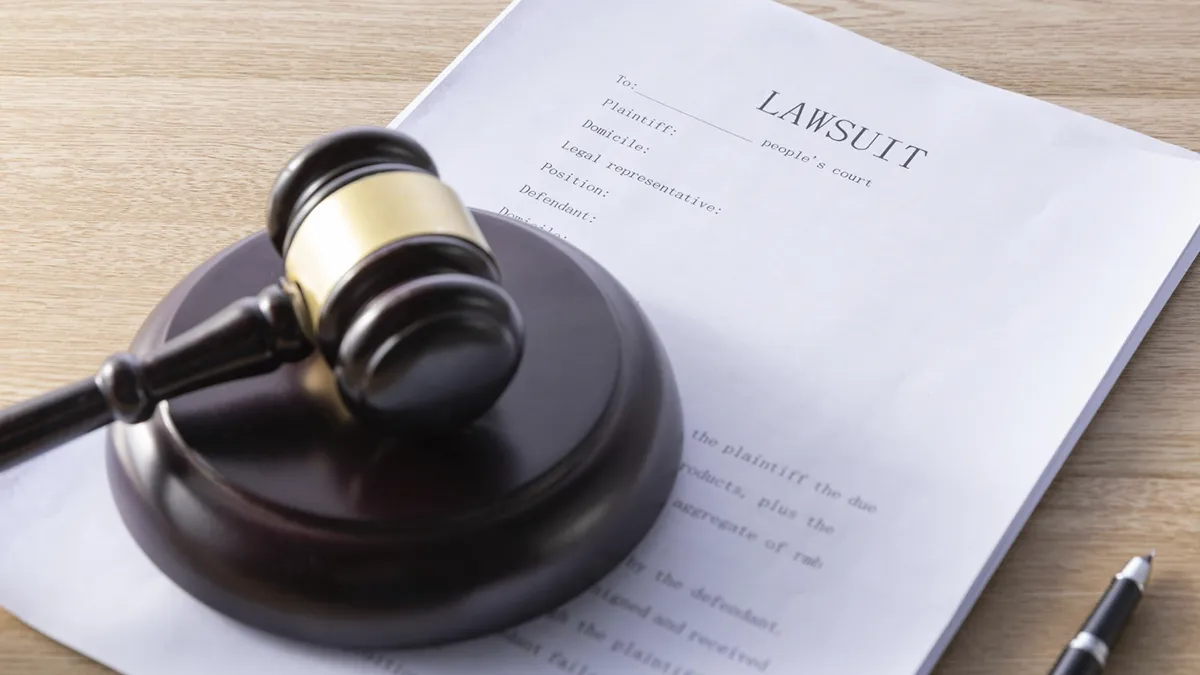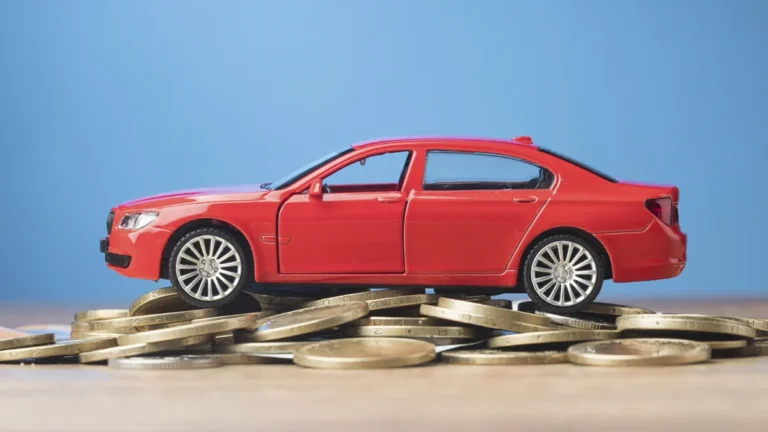How To Get a Debt Lawsuit Dismissed in 2025? 10 Proven Steps
You opened up the envelope, and inside was a debt lawsuit. Now WHAT? Being sued for a debt can be very scary. One day, you receive your mail and find nothing concerning, but the next day, you see your name on a court summons. Such a situation makes people feel anxious, unsure, and unable to handle things. The Consumer Financial Protection Bureau (CFPB) reports that most debt collection lawsuits end with a default judgment unless the person under debt responds to the suit.
When you are sued, it does not necessarily mean you have lost the case. You are entitled to your rights. Knowing how to get a debt lawsuit dismissed can save you from unnecessary stress and harmful credit consequences.
This guide covers the step-by-step process for dismissing a debt lawsuit. It also discusses modern online tools and the consequences of ignoring a debt lawsuit. Keep reading to learn what you should do to maintain your security.
How to Get a Debt Lawsuit Dismissed: A Step-by-Step Process
If you receive a debt lawsuit, you do have ways to deal with the situation. But you might wonder how to fight a debt lawsuit. Following these simple steps can help you resolve the problem and dismiss a debt collection case:

Step 1: Respond to the Lawsuit Immediately
This is the first step in figuring out how to get a debt lawsuit dismissal. After you receive a debt lawsuit, your dealings are limited by a schedule. Usually, you have just 20 to 30 days to answer your summons. If you do not act by the deadline, the court will decide in favor of the other party.
This is what you should do:
- Look at the paper you have received for the time you need to respond by.
- File a detailed reply: In it, write down your personal information, describe your response to the claims, and state your affirmative defense.
- Utilizing websites such as SoloSuit and Upsolve helps you answer the questions and submit them digitally.
- Answer it as quickly as possible, as doing so is the best way to avoid a debt lawsuit.
Step 2: Review the Lawsuit for Errors
Be sure to inspect the documents in detail at the very beginning. A minor error in these records might cause the lawsuit to be dismissed.
You need to watch for the following:
- If items on the bill, such as your name, are not correct, mention this to the caller.
- Remember to check the balance to make sure it is not inflated or contains any mysterious fees.
- If the account and reply don’t include the original deal or statements, that may be seen as suspicious.
- Out-of-date or unclear information.
Step 3: Request Proof of Debt (Debt Validation Letter)
Not every lawsuit is valid, even if you are sued. The Fair Debt Collection Practices Act (FDCPA) allows you to require proof of the debt if it comes from either a debt buyer or a collection agency. The process is known as debt validation, and it helps you defend against debt lawsuit. If you receive a complaint, mail a debt validation letter to the plaintiff’s attorney, asking them to validate it.
Here are the most essential things to be asked in a letter:
- Ask them to demonstrate legally how they are allowed to collect the debt.
- Request your credit history in the form of printed statements.
- An original version of the signed contract or credit agreement
- If the debt was sold, check the papers that prove it was sold, assigned, or transferred.
Step 4: Check the Statute of Limitations
Every state has a statute of limitations on debt that determines how much time a creditor or debt collector can wait to sue you for unpaid debt. As soon as the statute of limitations ends, you can have the court disregard the lawsuit.
- This is what you need to do:
- Find out your state’s deadline.
- Determine the date of your last payment.
- For Texas residents, you may write that the limit for collecting on a credit card is 4 years.
- Use a “statute of limitations calculator” online.
Step 5: Challenge the Plaintiff’s Legal Standing
For a creditor or debt collector to prevail in a case against you, they must verify that they have the legal right to sue you. This is referred to as standing. This sounds complicated, but it happens often, mainly when a third-party debt buyer brings a case.
Here’s how you can defend your argument:
- See if they can prove that they were assigned to purchase or take ownership of your debt.
- Find out if anything is missing from the evidence used to support their claim.
- Raise the issue of your standing in the court as a reason to dismiss the case at the start.
No standing means no case. It’s that simple.
Step 6: File a Motion to Dismiss the Debt Case
If the judge discovers issues such as excluded debts, missing evidence, or the wrong person being sued, the court may act on your early dismissal request. This is known as filing a motion to dismiss debt collection lawsuit. If you file a motion to dismiss the debt case, a majority of judges do not let insufficient cases proceed to court.
This is how you can do it:
- Check the complaints.
- Adjust your format.
- Describe why the case was unsuccessful and back up your argument with the necessary proof or related information.
- Remember to submit the motion early.
- Sites like SoloSuit allow you to use templates that explain each action you should take.
Step 7: Utilising Arbitration Clauses
Not sure how to get a credit card lawsuit dismissed? Many agreements for credit cards include an arbitration clause. It points out that if there are any disputes, these will be resolved through arbitration rather than a court case. If you agreed to arbitration in your original contract, you can force the lawsuit out of court to get a dismissal.
Here’s what you can do to benefit from this:
- Check the original contract’s clause regarding disputes or how they may be resolved by arbitration.
- Request the court to use arbitration rather than a lawsuit.
- Propose arbitration in your reply or via a different motion.
- Get legal help if you require it.
Step 8: Negotiate a Settlement for Dismissal
In some cases, it may be better to look for other options, since there is strong evidence that the debt is real. Sometimes, you may be allowed to work out a deal where the lawsuit ends.
This is how you can handle it:
- Pay either all at once or in installments.
- Request a dismissal with prejudice.
- Always have the agreement written to avoid confusion.
- Once you pay the exact amount and the date for payment, the lawsuit will be removed from the record.
- Stay respectful but firm.
Step 9: Prepare for Court
If the case progresses, being ready for court can significantly benefit your situation. It may be difficult, but if you are calm and well-prepared, the judge may even dismiss the case.
This is how you should prepare:
- Bring your answer, motions, copies of the debt validation requests, and the related replies.
- Try to look smart and organized, as the main thing is to demonstrate respect.
- Remember the arguments you made: Check for lack of standing and an expired time limit.
- Explain everything simply, tell the truth about what you know.
- Proper preparation during the trial will help the judge think highly of your case.
If the case involves problems that a family cannot solve on their own, it should contact a lawyer.
Step 10: Seek Legal Help
It’s not necessary to go through this process by yourself. If anything about the situation makes you unsure of what to do, legal advice can be beneficial, especially when the lawsuit seems complicated.
There are various ways to look for help.
- Retain a lawyer who is familiar with helping people resolve debts.
- You can use legal aid that is offered by various nonprofits in your state at no cost.
- To create your documents, you can use Upsolve, SoloSuit, and Achieve.
- Contact your local bar association: This way, they can recommend some cost-effective lawyers.
Dismissal With vs. Without Prejudice
Not all dismissals are final. A dismissal can be changed. A lawsuit can be dismissed with prejudice or without prejudice. Here’s the difference between the two:
- Dismissal With Prejudice
If the case is decided with prejudice, it ends permanently. The creditor is only allowed to bring the case once and cannot file the same lawsuit again. Sometimes, these things end in a settlement, a legal debt lawsuit defense, or abandonment by the plaintiff. You have won, and nothing more can happen. The debt has not changed, yet the lawsuit itself has expired and ended.
- Dismissal Without Prejudice
If the case is without prejudice, it will be dismissed now, though the creditor may refile it later. The letter could be sent if there was a mistake with the process, the paperwork, or the computers. They have been given another opportunity to avoid the issue, so they can try to sue if they solve it.
If your suit is dismissed with prejudice, the case is closed, and you are safe from being sued again. If a case is pursued with no prejudice, it means it can still be re-examined in the future.
State-by-State Debt Lawsuit Guide

State laws on debt collection differ greatly. From statute of limitations on debt to court procedures, knowing your state-specific rights will help you dismiss a debt litigation. The following table shows the state-by-state debt lawsuit:
| State | Statue (Years) | Wage Garnishment | Claims Limit | Legal Strategy |
| Georgia | 6 | Yes | $15,000 | Check for missing or incorrect paperwork |
| Illinois | 5 | Yes | $10,000 | Challenge standing without assignment proof |
| Florida | 5 | Yes | $8,000 | Suggest a simple agreement to avoid court |
| New York | 6 | Yes | $10,000 | Argue improper notice if not received |
| Texas | 4 | No | $20,000 | Remind them they can’t take wages for this debt |
| California | 4 | Yes, but limited | $20,000 | Ask for proof that the debt is real and accurate |
Note: You need to check your state’s lawsuit before filing for debt lawsuit dismissal.
What Happens If You Ignore the Lawsuit
Avoiding the lawsuit will not help, as it will only make your problems worse. As a result, you could lose the case without even facing a judge in court. It is the fastest way to lose the case. If you do not answer, the creditor will be given a default judgment in court.
This is what might occur in case of not responding to the debt lawsuit:
- The court may take your wages, or the collector can take an amount from your paycheck.
- The government may freeze your bank accounts. Without notice, your money may be confiscated by the government.
- They might file a suit against your property or other belongings.
- Your credit may be compromised. A judgment will stay in your credit report for a period of up to seven years.
Even if the deadline has passed, you can still find a solution. The faster you deal with issues, the more beneficial it will be.
How Dismissal Affects Your Credit Report
Being able to get out of debt lawsuit feels great, though it might not immediately reflect on your credit report. A dismissed lawsuit can leave a trace.
Here are a few points you should be aware of.
- Public records can be found in some cases. For example, dismissed lawsuits could be discovered on records up to seven years after the case ends.
- A rise in your credit score may take some time. Experian reports that a judgment can reduce your credit score by more than 100 points.
- If an entry is not correct, you may challenge it. Contact the credit bureaus to prove that the violation is dismissed.
Case Studies

People have successfully fought and dealt with debt lawsuits, showing that it is possible to win a case without being a lawyer.
- Leena in California was sued over a credit card debt. She quickly responded and asked the credit card company to confirm her debts. The court dismissed the case since the collector did not present any necessary papers.
- Joe in Texas disputed the lawsuit using texas debt statute of limitations. The court dismissed the case because he hadn’t made any payments in over five years.
- In Florida, Maria noticed an arbitration clause in her credit agreement and requested the court order arbitration. Since the debt buyer didn’t care about the costs, they dropped the lawsuit.
The stories demonstrate that you can address injustice and get help. What matters most is to take steps, not stay still or dismiss the court.
What to Do Before Your Court Date
Facing a court date can feel nerve-racking. But no worries, a little preparation goes a long way. No Worries! Preparing yourself a little saves a lot of difficulty. This list can help you feel confident as you head into the court:
- Bring copies of all documents
- Practice your responses to common questions
- Review key points for your debt lawsuit defense
- Get a good sleep
- Dress neatly
- Take a deep breath
All things checked? You are good to go.
Interactive Tools & Resources
These tools are designed to save you time, reduce stress, and boost your chances of success. You can use the following tools to make informed decisions:
Printable Court Prep Checklist: Before the hearing, print off this checklist to feel more prepared and calm.
Statute of Limitations Calculator: An official version of this tool hasn’t been released yet, but here’s how it will function:
- Record your last day of payment.
- Choose the state where you live.
- Select the type of debt you need (credit card, personal loan, etc.)
- Check to see if the time for filing the case has passed.
Legal Tech Tools
Do you know how to get a debt lawsuit dismissed online? The following advanced tech tools can help in this regard:
- SoloSuit: It allows you to make an answer or file a motion to dismiss debt collection lawsuit
- Upsolve: It provides help and advice for handling debts in lawsuits.
- Achieve: It gives you financial means and tools to deal with your debts.
Expert Insights
We spoke to attorneys who work on debt collection lawsuits, and they mentioned these as people’s primary concerns.
Q1: What error do most people commit when facing a debt lawsuit?
A. “It involves disregarding the lawsuit. Most of the time, judgment happens due to a lack of interaction. Many do not understand how important it is to file an answer.”
Q2: Will a lawsuit be dismissed if you simply demand proof?
A: “Yes, if the necessary documents are lacking, the case may not succeed.”
Q3: Is arbitration available as a solution, or is it only meant to waste time?
A: “It is a completely legal action. Many times, once you ask to begin arbitration, creditors will quit the case as they do not want to cover the fees.”
– Texas Lawyers Representing Consumer Debt Cases
Conclusion
If you are sued for debt, it may seem scary, but you could get the case dismissed. Quick action, familiarity with laws, and use of suitable tools have enabled many people to deal with debt lawsuits. From negotiation to challenging the debt, there are several choices available to you.
Not taking action can be the biggest mistake. Deal with the problem immediately. Follow the steps listed in the guide, discover SoloSuit and other tools, and use our free checklist to keep everything in order. If you find it challenging, remember that you can contact legal aid.
Don’t wait until it’s too late. If you’re facing legal action, now is the time to learn how to get a debt lawsuit dismissed and protect your rights. One step at a time, and you have got this.
For more helpful news and latest updates, visit our website or follow Founding Startups on social media.






